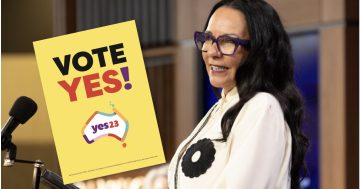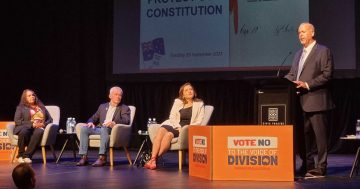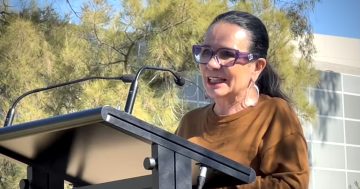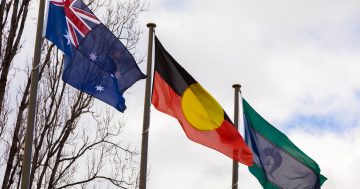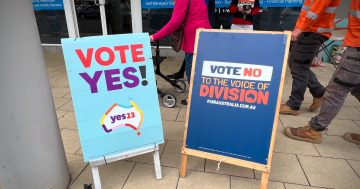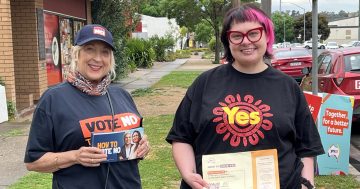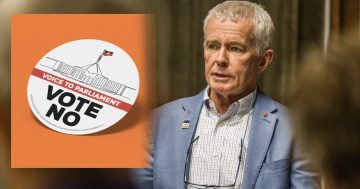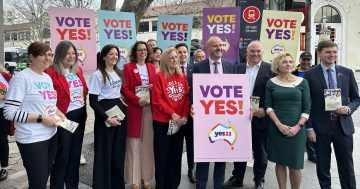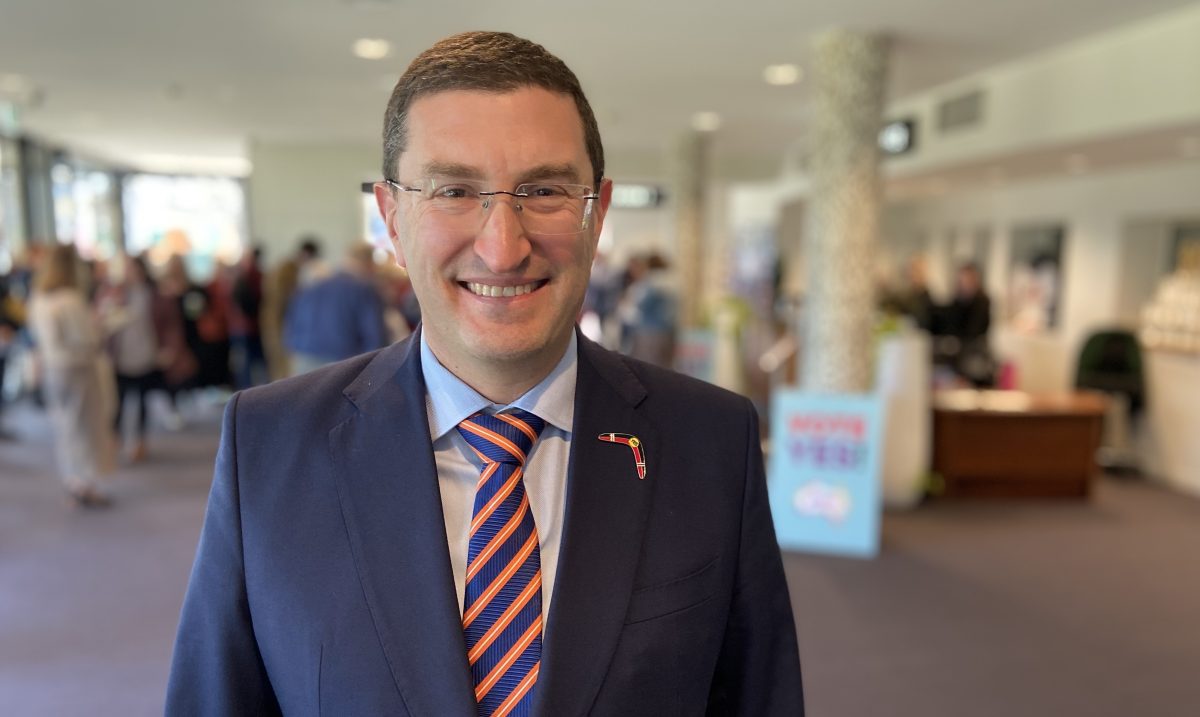
Liberal MP Julian Leeser is out to make the case for an Indigenous Voice to Parliament. Photo: Chris Roe.
Liberal MP Julian Leeser is standing by his conscience and continuing to advocate in support of the Indigenous Voice to Parliament despite his party’s formal opposition to the proposed model that Australians will vote on later this year.
“This is a topic about which reasonable Australians can disagree,” he said as he prepared to deliver an address at Wagga’s Civic Theatre on behalf of the University of Canberra.
While the Liberal Party proudly proclaims the tradition of comprising a ”broad church”, Mr Leeser was forced to quit the shadow cabinet in April when leader Peter Dutton nailed his ”No” colours to the mast.
“My partyroom colleagues have taken a different view to me and it’s the reason that I stepped down as the Shadow Minister for Indigenous Australians and the Shadow Attorney-General,” he said.
“Frontbenchers are bound by the decisions of shadow cabinet, but backbenchers are free to campaign as they might and I’ll be campaigning with many other Liberals around the country because I believe we can make a practical difference to the outcomes of Indigenous Australians.”
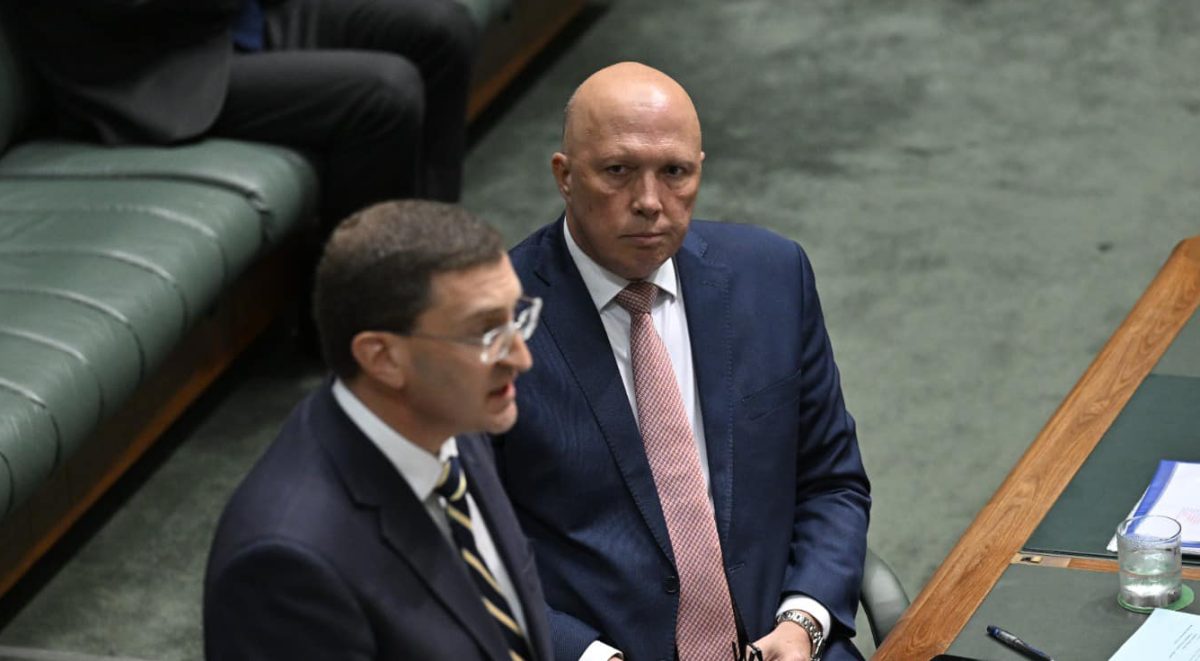
Julian Leeser’s support for the Voice left him out of step with the Liberal Party frontbench and leader Peter Dutton. Photo: Julian Leeser.
Mr Leeser’s tour of regional centres follows his University of Canberra Reconciliation Lecture in June where he laid out the decade-long journey from a movement for Constitutional Recognition of Australia’s First Peoples to calls for the Voice, something he describes as a “wholly Australian idea built for Australian conditions”.
In the lecture, he described the nationwide consultation process that culminated in the First Nations National Constitutional Convention in May 2017, where “for the first time, Aboriginal and Torres Strait Islander Australians were asked what they wanted from constitutional recognition”.
“Remarkably, instead of rejecting the document that was silent about them for so long, Aboriginal and Torres Strait Islander Australians embraced it,” Mr Leeser said.
The resulting Uluru Statement From the Heart was signed by more than 250 Indigenous delegates from across the country and Mr Leeser said Australians should read the statement as they considered their vote.
“We seek constitutional reforms to empower our people and take a rightful place in our own country,” he quoted.
“When we have power over our destiny, our children will flourish.
“They will walk in two worlds and their culture will be a gift to their country.”
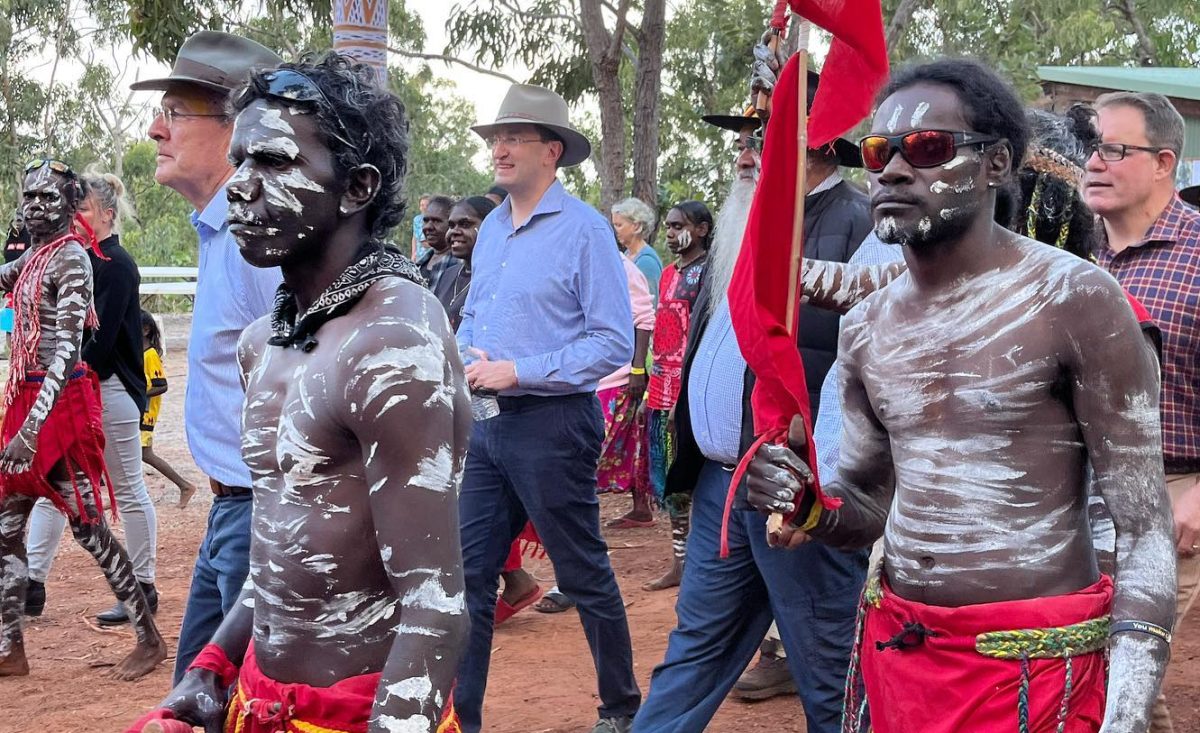
Julian Leeser (centre) with MP Mark Dreyfus (left) and Senator Patrick Dodson (right) and Yolngu dancers at the Garma Festival in NE Arnhem Land. Photo: Supplied.
A former lawyer and self-described “Nerdus Maximus” when it comes to the Australian Constitution, Mr Leeser maintains some reservations about the wording of the referendum question, but is adamant that the Voice is an essential step forward to make a “meaningful difference to the lives of our Indigenous brothers and sisters”.
The question Australians will be asked to vote on is: “A Proposed Law: to alter the Constitution to recognise the First Peoples of Australia by establishing an Aboriginal and Torres Strait Islander Voice. Do you approve this proposed alteration?”
Mr Leeser rejected the suggestion that the ”Yes” campaign had struggled to put forward a clear case amid broad speculation about what the Voice would and would not do.
“I think there are three reasons to vote Yes in this referendum,” he said
“The first is that this is our chance to recognise Indigenous Australians. The second is because this is about giving the parliament a mandate to create a new body called the Voice. Its job will be to help make better laws and policies about Indigenous Australians.
“And the third thing is, it’s a safe change that maintains the supremacy of the parliament.”
The AEC has now posted the authorised Yes and No cases on its website and Mr Leeser said a pamphlet would soon be distributed to all Australians to clearly lay out both the official cases as the yet-to-be-confirmed referendum date drew near.
“There’s a gap between the performance of Indigenous Australians and the performance of other Australians,” he said.
“And it’s a gap that hasn’t closed despite goodwill and despite lots of money that’s been put into communities.
“I think the missing piece is consulting property with Indigenous people on the policies and laws that affect them.
“That’s what this referendum is.”
You can read the authorised Yes and No cases here.








